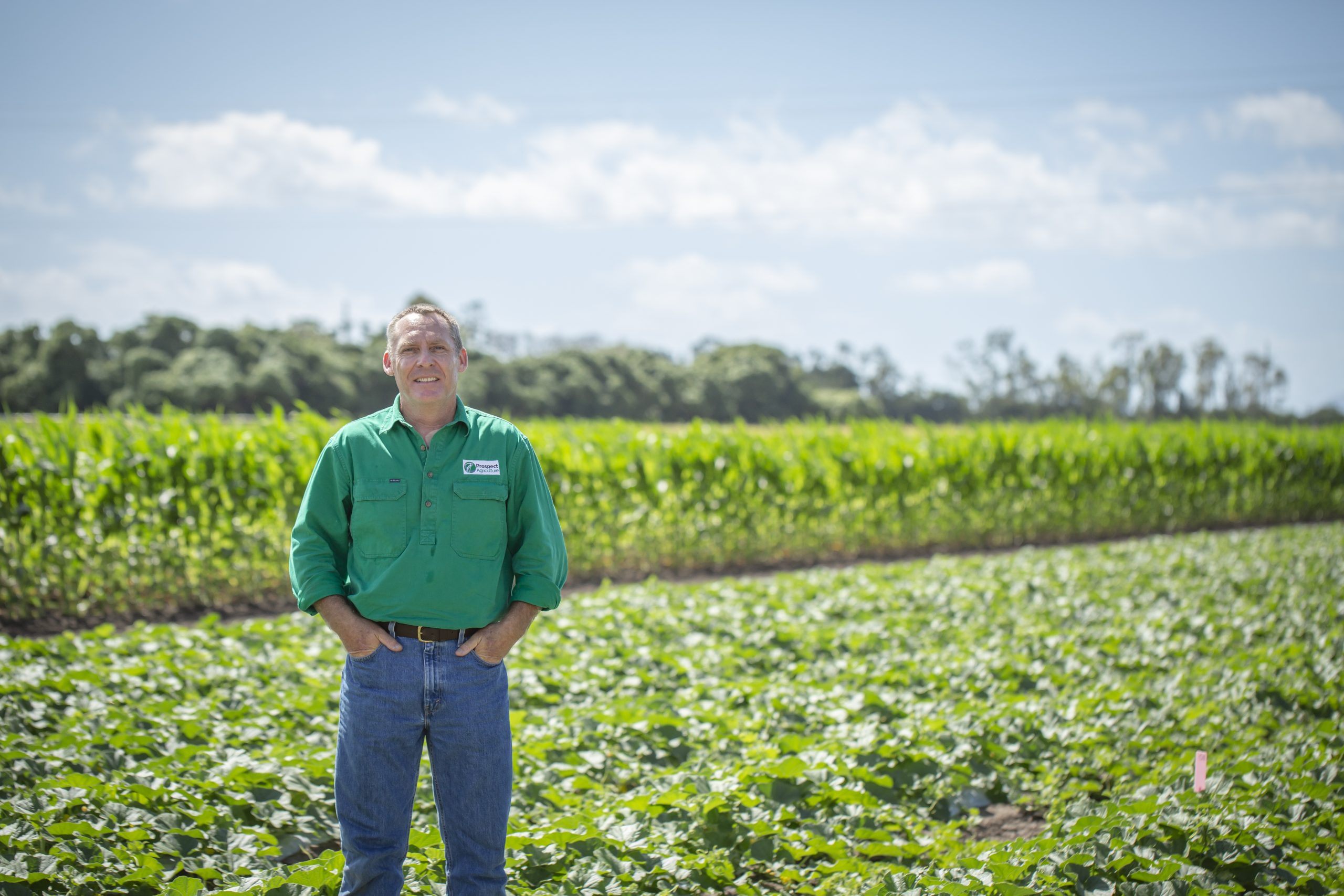Delivering value during trying times
In this ‘Ask the industry’ column, Prospect Agriculture agronomist Chris Monsour (pictured above) discusses his involvement in a series of horticultural field trials held in far-north Queensland, which have proved beneficial for growers and advisors before and during the COVID-19 pandemic.
Over the past three years, Syngenta has hosted horticultural field trials under the GrowMore banner to demonstrate crop protection products under commercial conditions. The concept has immense value for advisors and growers. It showcases new chemistry in a commercial program so we can evaluate how the products work and how they might fit into an overall strategy, in many cases well ahead of launch to the market.
I have been involved in two GrowMore demonstrations, and the feedback from the Ayr site in 2019 was excellent. My role was to oversee the establishment of these sites, tailoring a crop protection program based on the insect pests present as well as protectant disease program.
The GrowMore sites are a fantastic concept. We get to see the results in our local growing conditions on a regular basis and it provides an opportunity for growers to come in and see that as well. Often growers don’t get to see what would happen if no sprays were applied. It provides an appreciation of how intense the insect and disease activity can be, and how effective the crop protection program has proven to be.
It also means Syngenta sales and technical staff can interact with growers and advisors and hear some of the challenges in their patch. Syngenta is always working on its pipeline of new products; and as a research and development company, any feedback goes a long way.
An online experience
Delivering the Bowen site – from transplant in March to trial-end in June – has proven to be quite different since we were not able to hold the field day due to COVID-19 restrictions.
To Syngenta’s credit, we came up with an alternative. This involved me sharing weekly video recordings of how the crops developed with a particular focus on the changing insect pest and disease spectrum, along with the results from the insecticide and fungicide programs. People generally only see the end results from trials. This virtual style of experience brought more people into the crops, much sooner in the piece.
The range of products that we used in the spray program included MINECTO® FORTE, PROCLAIM® OPTI, ORONDIS® FLEXI , and a new development fungicide, as well as first commercial look at the new PLINAZOLIN® insecticide (not yet registered in Australia).
In both the tomato and the rockmelon paddocks, the results were excellent. There was very effective control of insect pests in both the rockmelons and the tomatoes. There was more disease pressure in the rockmelons compared to the tomatoes and the control of gummy stem blight and downy mildew in the rockmelons was very impressive.
Both growers and advisors would be very happy to see these results in their own fields. It was a very impressive overall result.
Find out more
For more information or to ask a question, please contact your local Syngenta Territory Manager, the Syngenta Advice Line on 1800 067 108, visit the Syngenta website or email Vegetables Australia: info@ausveg.com.au. Please note that your questions may be published.
The R&D content for this article has been provided to Vegetables Australia to educate Australian vegetable growers about the most relevant and practical information on crop protection technologies and their on-farm applications.
New trial sites: Adelaide Plains, South Australia
Syngenta has announced it will conduct GrowMore horticulture trials in the Adelaide Plains this spring. These trials will demonstrate new solutions to more challenges, with a focus on onion and potato crops. Stay up-to-date by clicking here.
This article features in the spring 2020 edition of Vegetables Australia. Click here to read the full publication.

